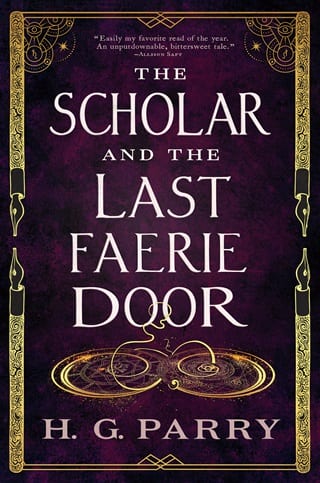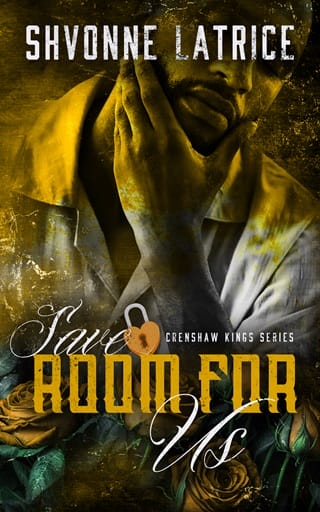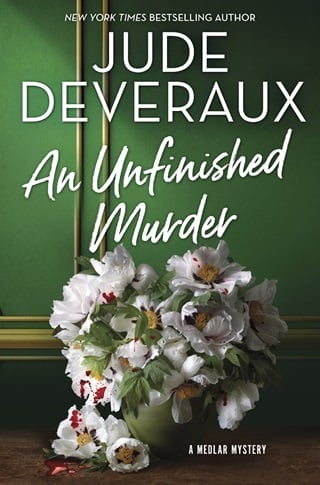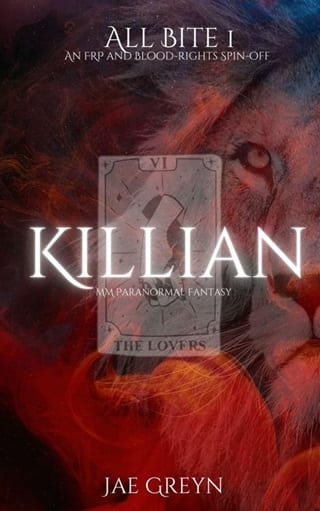12
12
T hat summer at Ashfield was like living in another world. The house seemed to bask forever in the light of the last golden months before the war.
It was the driest summer on record, the heat parching the grass and shimmering the sky. By the end of the first week, the doors and windows of the house were open all day, sheer curtains twisting in the gentle breeze, and we had fallen into routine so simply and sweetly it was difficult to believe we hadn't been here for years. I would wake at nine or so, luxuriously late by my standards, and lean out across the sill to feel the warmth already rising from the roof tiles and blazing across the moorland. Eddie would be already downstairs, and the two of us would walk in the cooler parts of the garden or sit by the fountain drinking iced water and lemon until Hero and Alden finally came to join us. We would breakfast together on tea and bacon and boiled eggs and toast, talking and laughing as the rest of the morning and then the early hours of the afternoon wound away.
Then, right at the hottest, haziest part of the day, when anybody sensible would do as little as possible, we would stir ourselves into action. It was generally action only in the most basic grammatical sense of the word. Sometimes we would go bathing in the nearby creek, its waters brown and glittering in the summer drought, sprawling on the grass to dry ourselves before slipping back in again. Sometimes Hero would drive us into the nearest village for ice creams, and we would wander up and down the cobbled streets looking in tiny shop windows. There was talk once or twice of going for a longer drive to the coast, especially when it was discovered I had never been to the sea, or to York for a weekend, but as each morning dawned scorching and dazzling bright, it seemed too much effort, and there was no real enticement to make it.
Dinner was served at seven, and it was the only time I would ever occasionally glimpse the elusive Lord and Lady Alconleigh, Alden's parents. I never did work out if they were what I expected or not. Lord Alconleigh was a heavy-set man, with a grey face older than its years; Lady Alconleigh was younger, sharper, with Alden's gold hair and the air of careless lassitude he could affect when in large groups. Both were vague and polite to all of us, without much interest. We were Alden's friends come to stay, and it was nice that he had friends to amuse him so they wouldn't have to. It was the way I thought of upper-class families, based on my mother's ideas. Even after a year at Camford, though, I still expected more of Family. As far as I could see, they never even did any magic.
"That's because of the staff," Alden explained with a roll of his eyes. His parents had left the table early, and we were alone in the room as we lingered over dessert. "They don't want them getting ideas."
I didn't understand at first. "But the staff know about magic, don't they?" I felt sure Morgan did—perhaps more than I did myself.
"Of course they do. They've worked for the family for generations. Well, not them, obviously. Their ancestors. Morgan's father was the head groom."
Hero took pity on me. "Houses like Ashfield—Family houses, mage houses—are waited on by common people who have been sworn to secrecy." She speared a bite of her poached pear and waved her fork for emphasis. "Usually their own families have known and worked here for generations, as Alden put it so precisely. The servants have the trust of the Families, and vice versa. But traditionally, the Families have refrained from doing magic around them, lest they work out too much about how it's done."
"Why would that be bad?" I asked, although I was beginning to see all too well. "Why couldn't they learn too?"
"Well, in theory, it wouldn't be possible for them, without Family blood. Though I have to say, I haven't noticed any difference between your abilities and those of anyone from a magical Family lately."
I shrugged, pleased and embarrassed at once. I had felt that myself, and my marks in practical tests had climbed sharply since my first term, but I hadn't dared to hope it was apparent.
"There used to be. When I first started, I could barely fix a knot. It's different since I came to Camford. The magic feels easier."
"It's probably all nonsense," Alden said. "What they say about magic and bloodlines is probably really just the difference between growing up practicing spells and only coming to them as an adult. The way children pick up languages more easily than adults, or riding a bike."
"No, it isn't." I'd felt it, after all, those long months learning under Lady Winter. Probably, though I was so much more skilled now, I still felt it. Camford had unlocked power in me I hadn't known I possessed. When I sat in lectures, I could physically feel my mind opening, expanding, unfurling like a flower whose roots fed on pure knowledge. And yet I was still not Family; probably I would never know what it felt like to pull magic from the ether the way they did, as though it weighed as little as air. "Not entirely."
"It isn't," Eddie agreed. He looked at me apologetically, as though it was me he was contradicting. "I'm sorry, Clover—you're clearly marvellous at all this. But usually it's true. When I was very little, four or five, I was friends with our gardener's son. I could do basic spells then—light globes, flowers growing, that sort of thing. I tried to teach him. It didn't work, not in the slightest. He was very upset with me. I think he believed I was playing a trick."
Hero raised an eyebrow. "Didn't you tell him you'd never told a lie in your life?"
"Well," Eddie pointed out, reasonably, "that's exactly what a liar would say."
I was still thinking about the servants. "Even so, why shouldn't they learn too, the way I did? It might be more difficult, but it isn't impossible. Some of them might even be able to pass the Camford exams. What would be wrong with that?"
"Absolutely nothing in the world," Hero said, "except that would upset the delicate balance of things that people like our parents don't want upset."
"Besides," Alden said very dryly, "if all the servants became mages, where would they get servants from?"
Eddie stayed quiet. I had the impression, without knowing why, that he already felt he'd said too much.
"It's rotten, isn't it?" Alden said, clearly reading my face. "Thank God all that's starting to relax a bit since the war. Shall we go through to the library?"
That put all other thoughts out of my head, because those evenings in the library were the best of all. It was a beautiful library, of course—dark oak shelves extending to a high ceiling, worn reading chairs in dark leather, strange instruments of brass and wood secreted about the place. The far wall was taken up with tall, wide windows that opened out onto a stony courtyard and then to the moors beyond. Its collection of magical theory and folklore was impeccable. There would have been all the time and space in the world to work on our project. Somehow, we never did.
Instead, Hero would put on the gramophone, and scratchy voices and music would spill out into the air; Alden would throw open the windows, and the warm heather-scented wind would rush through. Bottles would be opened, mysterious dust-covered things dug up from the cellar filled with a golden summery wine like none I'd ever tasted. We would talk about the future—the places we would go, the discoveries we would make. Hero was going to travel the world, as soon as she had her Camford degree, and study the spellcraft of different cultures—Africa, China, the Middle East, the Amazon Rainforest. I told them about the Victorian expedition to faerie country I'd found in Lady Winter's library, and we all agreed we would make another someday, the four of us, once the Accord was lifted and the doors between worlds were open again.
By midnight, the room would be thick with spells. We were away from Camford; there were no rules about what spells we could and couldn't perform save those that governed the rest of the magical world; we were young and brimming with magic. We would levitate books and cushions and even each other; lamps would twist and transform into great glowing birds; the ceiling would surge like the ocean and the floors would shimmer like the sky. And I didn't think about the green glint in Matthew's eyes at midnight or the exhausted lines on his face, I didn't think about our farm withering in the record heat while my family battled to save it, I didn't think about the war or the epidemic or everything that had followed afterwards. The four of us were floating through the sky on an island that was only one another, and I let myself pretend it was all there was.
But it wasn't all there was. We weren't in another world. Nor, as much as Ashfield itself stubbornly pretended otherwise, were we back in time. As the weeks went by, it became more difficult to ignore it. Midsummer came and went. We built a bonfire and saw in the dawn of the longest day, and that night I couldn't shut out the thought that my family were surviving another midnight. Each morning I checked the post, and this time I had no letter reassuring me that things were fine. I wondered if things truly were fine no longer, if Matthew was simply too busy to write, or if my family had at last given up on me.
Along with the growing dread came the niggling awareness that something was wrong. Alden had hinted very strongly that I was being invited to Ashfield partly to continue our experiments, away from Camford's eyes. And yet we hadn't done so, not once. When I mentioned this, taking advantage of a rare moment alone by the creek with him while the other two went to get drinks, he brushed my questions aside.
"There's time enough for all that. The summer's barely begun."
This didn't sound like the Alden I knew, the one who barely noticed the difference between having an idea and acting on it. I was usually the one urging caution, badly.
"You said we were going to tell the others about the double-door theory when we were further along with it," I reminded him. "I assumed we were going to tell them here."
"Oh, give it a rest, Clover, will you?" he snapped. "If you're really that eager to keep studying, you can always go back to Camford."
It startled me, and later it bothered me. Not because I was particularly hurt—I'd heard far worse growing up in a household with five siblings—but because it wasn't the first time I'd noticed that since coming home Alden hadn't been quite right. Even on our very happiest nights, he was a little too wild, too energetic, less like he was being swept up in his own feelings and more as though he were trying to outrun them. Occasionally his teasing of Eddie or his quarrels with Hero would take on an uncomfortably sharp edge; he was gentler with me, and yet I found myself treading carefully around him, to avoid that edge turning on myself. Just glimpses, like the glint of waves on the surface of a lake, and then they would smooth over and he would be himself again. Still, I couldn't shake the thought that something was lurking in the depths.
As we got ready for dinner together that evening, I asked Hero tentatively if he was all right. She sighed.
"He gets like this at Ashfield," she said. "It's tiresome, I know. I'll keep an eye on him. As though I don't have other things to think about."
I knew now not to take Hero's protestations of heartlessness seriously, especially where Alden was concerned, but I also knew what she was alluding to. Another raven had come from her father that afternoon. Another thing we weren't thinking about, just as we never mentioned the complete lack of communication from Eddie's family, and now my own.
We didn't go to the library after dinner that night. We'd made plans—firm, concrete plans—that we were finally going to the lake at the edge of the estate for a picnic the next day, and then we were finally going to go boating. That meant Hero had decided we were all going to bed at eleven. We had made these concrete plans at least three times already that summer, and each time we had slept far too late to make a start. Or Alden had, at least, and he was the only one of us who knew how to row.
"I don't see why it's my fault," he protested, when Hero brought it up. "It's not as if rowing is so complicated. We're practically second-year Camford students, for God's sake."
"Yes, Alden," Hero said patiently. "And believe it or not, they don't teach boat-rowing spells in first-year incantations. Besides, you were the one who wanted to go. Now you're suggesting we should have left without you?"
"I'm suggesting you could have. I would have sulked for a week, obviously, but you could have."
"Well, if we all wake up except you tomorrow, that can be the next plan. I still think we ought to go to bed before three in the morning tonight to make sure it doesn't happen."
I didn't mind. The late half-drunken nights were starting to blur into one another by now. It was a luxury, for a change, to slip into bed in my funny corner room with the early evening darkness cool and inviting outside the window, to wriggle beneath the sheets pleasantly sleepy and yet still awake and sober enough to feel them. It was even a luxury, in a way that surprised me, to have an evening apart from the others. I loved them, and I hadn't for a moment found their company oppressive, but our lives had been very entwined lately. There was no way, for example, we would ever have really left in the morning without Alden.
I was dozing when I heard a noise outside. The creak of a floorboard, the light thud of a footstep; I blinked and saw a glimmer of light slide under the door. My sleepy mind made nothing of it at first. I had grown up in a house crammed with people. I was used to others moving around at night.
I wasn't at home, though. And—I sat up, my head still clearing—none of the others should be passing my door at night. Hero was next door, but there was nothing down my end of the corridor to draw her past. The boys were a floor below, Lord and Lady Alconleigh miles away at the other end of the house, the servants asleep downstairs. On impulse, feeling ridiculous, I slipped out of bed and crept to the door. It was too dark to do any such thing without a lamp: I caught my toe on the rug and nearly fell against an expensive-looking vase. That woke me the rest of the way up. My heart was still racing from that near miss as I opened the door a crack and peered through.
In the darkness, the corridor looked strangely disorienting—too long, too narrow, a twisting tunnel in a rabbit warren. Moonlight poured from a window at the far end, startlingly potent, more liquid than light, although I would have sworn that we had had a full moon only a few days ago and my own room had been dark. And a figure stood there. A man, tall, lean shoulders silhouetted against the window. My heart spiked, a rapid-fire cascade in my chest, before the figure turned his head just enough to catch the light.
Alden. It was only Alden. He wore his old maroon dressing gown, as he often did when he slumped down for breakfast in the morning, and he walked slowly, without his usual lightness. His curls were wild and unbrushed, and his feet were bare.
I must have leaned on the door without meaning to, because the hinges gave a faint, unexpected squeak. I pulled back on reflex; at the same time, Alden turned.
His eyes slid right over me, past the door, searching for someone else entirely. His voice was an uncertain whisper.
"Thomas?"
I didn't know anyone at Camford or Ashfield called Thomas—for one thing, Family names tended to the ornate—but the name in Alden's voice sounded oddly familiar.
There should have been no reason why I didn't just announce myself, go up to him and ask him who Thomas was and what he was doing. It was certainly what I would have done in the daylight. I didn't. There was something uncanny about the scene: the too-strong moonlight, the too-empty corridor, the too-fixed look on Alden's face. I thought, without knowing why, of the night I had opened the door of my brother's room, and seen a faerie smile at me from behind his eyes.
I stayed where I was as Alden turned away, as he walked the length of the corridor, climbed the stairs, and disappeared. Then I drew back from the door and closed it, very carefully, and made my way as quickly and lightly as I could back to bed. The night was still warm, and yet I was ice-cold.
I lay awake for a long time after that. I never heard Alden come back.
 Fullepub
Fullepub 



